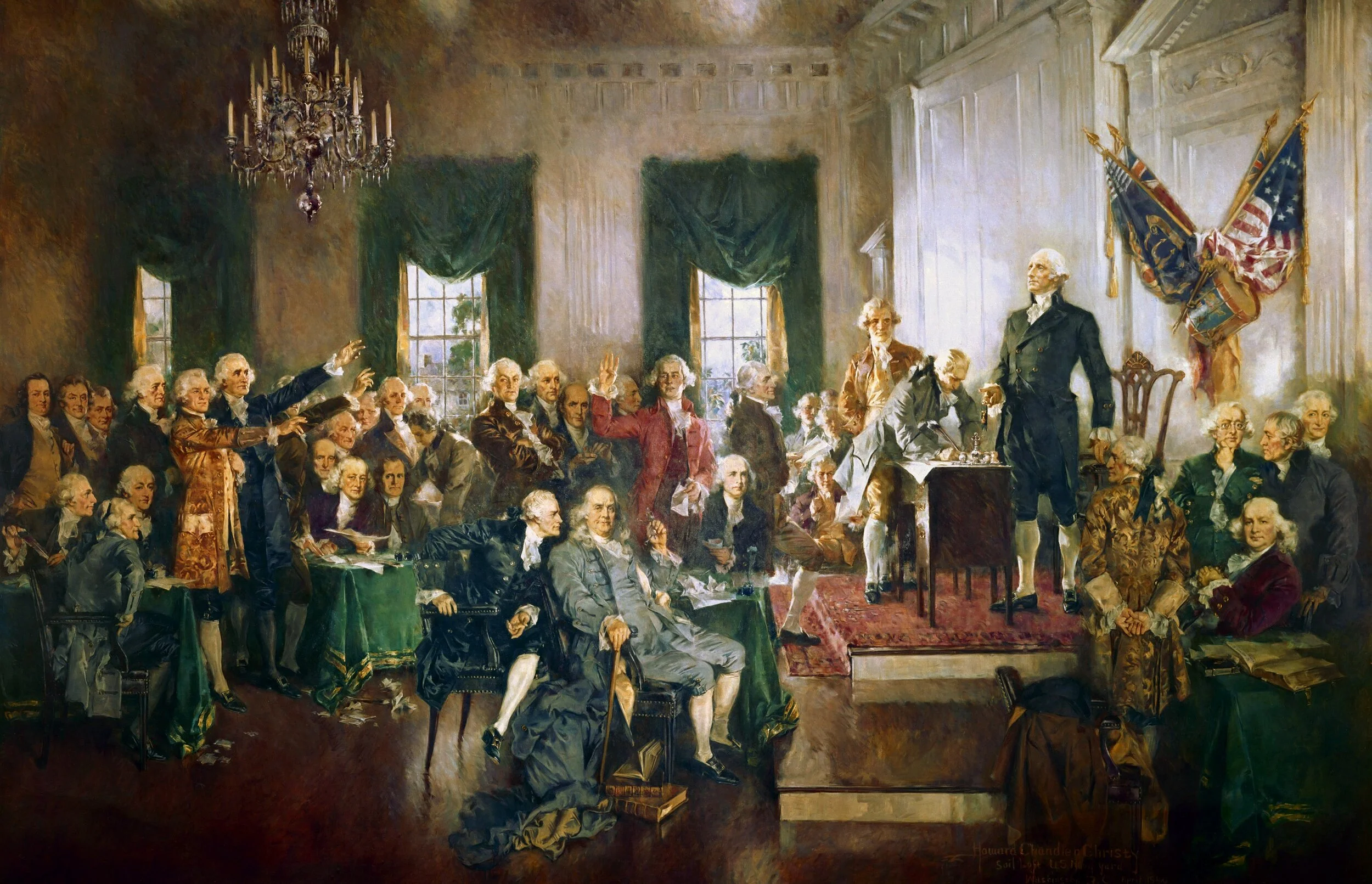Rights & Duties, Expanded
/The official governmental statements about the duties of a citizen are short and tame and uninspiring. The items on the official lists are either inscrutable (“Defend the Constitution”) or low-impact (“Voting”) or unlikely to happen (“Serve on a jury”) or something that people do when it suits them (“Respect the opinions of others”). There is more to citizenship than those requirements, surely.
Citizenship is often sold short. It tends to be framed in the context of going along with the status quo, or with a minimum of lawful, self-reliant behavior. Bruce Springsteen, in a song called “The Promised Land,” defends the American common man’s behavior with, “I've done my best to live the right way, I get up every morning and go to work each day.”
Springsteen’s everyman believes he’s living ”the right way.” But is it enough? Does citizenship demand more than just pulling your own weight? The surprising answer from some scholars is that simply pulling your own weight and following your own path is what a good citizen must not do.
The truth is that the ideal good citizen must be a paragon of multiple virtues, who brings to the fore different qualities according to circumstances. To assume, as so often happens, that certain components of civic virtue are the totality is to emasculate the word.
That’s from Derek Heater’s 2004 book, “Citizenship: The Civil Ideal in World History, Politics and Education.” He says that slimming down our notion of citizenship to just one or a few behaviors for all circumstances is not merely insufficient, but downright dangerous.
The danger occurs when, for ideological objectives or party political advantage, the part is passed off as the whole. Of what does the whole consist? In basic terms, the answer is simply given: loyalty, responsibility, and respect for political and social procedural values.
There are people who say good citizenship means respecting the flag, or paying taxes cheerfully, or voting, or keeping the lawn mowed and the dog on a leash, or wearing a mask during the covid emergency, or some other one thing. But those are the “certain components” that Heater says are insufficient. Those are the right things to do at one moment. But the full range of things that a good citizen might be called on to do is far broader. You might be required to throw yourself on a grenade, or to blow the whistle on a dishonest colleague, or quit a job or leave a community. You may find yourself alone in an angry crowd — knowing you are right. You may be called on to stand up for the truth or stand by an innocent victim of mob violence.
Below are three links to lists of citizenly activities, organized by the circumstances when they might be appropriate. This organization recognizes Heater’s insistence that the right thing depends on circumstances.
By including any activity on this list, the Congenial Iconoclast does not advocate its use in all circumstances. They might not be appropriate in America today at all. Several of the things listed here have never been the right thing to do in the history of America. But they have been appropriate for the citizens of other nations at other times. If something appears on this list, we only mean that it is possible to imagine circumstances when it might be appropriate.
Click on a link to go there:








